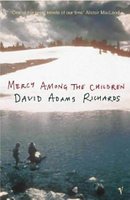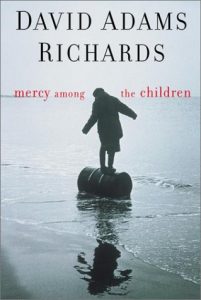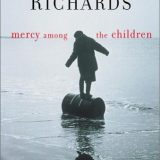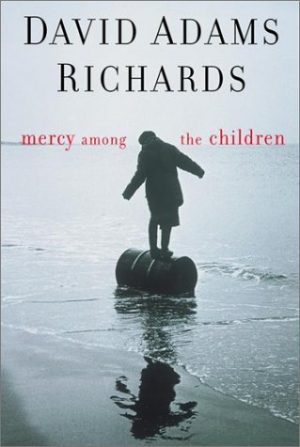Mercy Among the Children – David Adams Richards – 2000

Reviewed by: Dave Date: 20 February 2002
This is among the very best fiction I have read in a long long while. And yet, it was given to me by a friend who could not endure reading any further than the first few chapters. I think it is the kind of story you either love or hate, it is dark and frustrating and definitely not a “feel-good”. I can see how some could feel smothered and weary with the relentless pessimistic Hardyesque fatalism that Richards marinates this thing in… it’s like Jude The Obsure meets the biblical Book of Job! But I like Hardy. And Job, for that matter! So I did not mind the constant question that revolves in “Mercy” which is, “How is the Henderson family going to survive the terrible injustice, shame and misfortune that is hurled against them?” Does truth matter?
 Set in rural New Brunswick, Lyle Henderson, now nineteen years old, narrates the history of his family… the misfortune and ostracism that began with his grandfather and was passed on down to Lyle’s father Sydney. At the age of twelve, an accident happens and Sydney, mistaking his friend for dead and believing himself responsible, makes a rash vow to God. If the boy lives, Sydney will never harm another living soul. The boy gets up and walks away. Lyle’s recollections chronicle the result of Sydney’s radical superhuman commitment to an unlimited “turn the other cheek” pacifism. Sydney subjects himself, and in turn, subjects his family to a life of utter poverty and ridicule in the face of escalating accusations and abuse that come from a community that is only too willing to take advantage of his non-resistance. As Lyle says at one point “My mother and father’s dreams were always dispensable to certain people, who for some reason believed that they themselves and their dreams were indispensable.”
Set in rural New Brunswick, Lyle Henderson, now nineteen years old, narrates the history of his family… the misfortune and ostracism that began with his grandfather and was passed on down to Lyle’s father Sydney. At the age of twelve, an accident happens and Sydney, mistaking his friend for dead and believing himself responsible, makes a rash vow to God. If the boy lives, Sydney will never harm another living soul. The boy gets up and walks away. Lyle’s recollections chronicle the result of Sydney’s radical superhuman commitment to an unlimited “turn the other cheek” pacifism. Sydney subjects himself, and in turn, subjects his family to a life of utter poverty and ridicule in the face of escalating accusations and abuse that come from a community that is only too willing to take advantage of his non-resistance. As Lyle says at one point “My mother and father’s dreams were always dispensable to certain people, who for some reason believed that they themselves and their dreams were indispensable.”
Sydney’s life-philosophy is this: “No one can do an injury to you without doing an injury to themselves.” And secondly, “In man’s heart is the only truth that matters.”
For the bulk of the book Richards does a tremendous job of showing us the frustration that comes from trying to actually live out the implications of Sydney’s philosophy. Because love and power are diametrically opposed. He who loves the most has the least power, and we find ourselves at times siding with Lyle… who is terribly sick of being trampled. But what’s the alternative? To become a villain? It’s not until the story comes full circle that we nod in agreement with Constable Delano, when he concludes about the Henderson family “The truth does matter!”
What a profound and deeply moving, beautifully crafted book. You will love the victims, and you will loathe the villains. But, even some of the villains you will learn to love (or at least pity), because in the end, there is mercy among the children
















